Dive into the cutting-edge intersection of art and artificial intelligence at the 2024 Spring Art Education AI Lecture/Workshop series. Get ready to experience a captivating journey into the minds of prominent artificial intelligence artists and scholars.
The series will occur on Zoom and is hosted by Dr. Ahran Koo, associate professor of art education. Don’t miss out on this unique opportunity to gain firsthand knowledge from these trailblazers in their field. The series is sponsored by the National Art Education Foundation, The California Arts Project, Fresno State ASI, Fresno State Office of Ideas and Fresno State College of Science and Mathematics.
If you plan to attend multiple or all events, for your convenience, you may use this Registration Link to register for the events instead of the individual registration links below.
Schedule

3:30 p.m. Feb. 8 – Jun-Yan Zhu, Pittsburg, PA | Zoom
Jun-Yan Zhu is an Assistant Professor at The Robotics Institute in the School of Computer Science of Carnegie Mellon University. He holds an affiliated faculty appointment in the Computer Science Department and Machine Learning Department. His scholarship is in computer graphics, computer vision, and computational photography. Prior to joining CMU, Zhu was a Research Scientist at Adobe Research.

10 a.m. Feb. 9 – Entangled Studios: Sofia Crespo and Feileacan K. McCormick, Lisbon, Portugal | Zoom
Entangled Others stands as an artistic initiative co-founded by Sofia Crespo and Feileacan McCormick. Crespo, driven by an intrigue in the intricate relationships and disjunctions between humans and technology, dedicates herself to unraveling how organic life harnesses artificial mechanisms to replicate and undergo evolutionary processes. McCormick, a generative artist, researcher, and former architect, centers his artistic practice around ecology, nature and generative arts. His primary emphasis lies in granting non-human entities novel forms of existence and vitality within the digital realm.
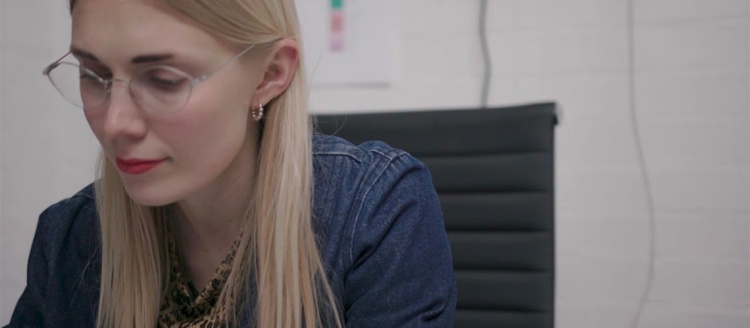
3:30 p.m. Feb. 15 – Jenna Sutela, Berlin | Zoom
Jenna Sutela is a Finnish artist based in Berlin. She and her studio work with biological and computational systems, including the human microbiome and artificial neural networks, to create sculptures, images and music. Sutela’s work has been presented at museums and art contexts internationally, including the Swiss Institute, New York (2023); Haus der Kunst, Munich (2022); Castello di Rivoli (2022); Kiasma Museum of Contemporary Art, Helsinki (2022) and Shanghai Biennale (2021). She was a Visiting Artist at The MIT Center for Art, Science and Technology in 2019-21.
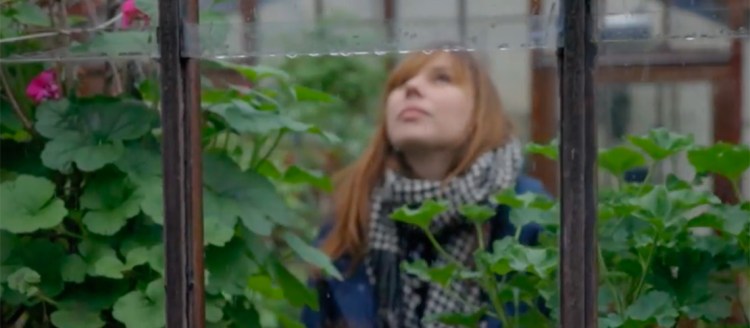
10 a.m. Feb. 16 – Anna Ridler, London | Zoom
Anna Ridler is an artist and researcher who works with systems of knowledge and how technologies are created in order to better understand the world. She is particularly interested in ideas around the natural world. Her process often involves working with collections of information or data, particularly datasets, to create new and unusual narratives.
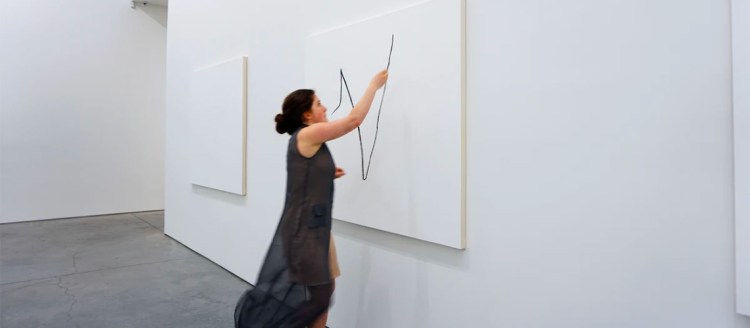
3:30 p.m. Feb. 22 – Sarah Meyohas, New York | Zoom
Sarah Meyohas is a conceptual artist whose practice considers the nature and capabilities of emerging technologies in contemporary society. Using the familiar emblems of biological life, Meyohas investigates the complex operations that increasingly govern our world – such as soaring birds, created using augmented-reality software, flock in unison with the frenetic variations of the stock market; rose petals, aggregately identical but individually unique, comprise the dataset for their AI-created equivalents; Bitchcoin, a cryptocurrency backed by physical artworks, questions the speculative value of cryptocurrency and the ineffable value of art. Meyohas creates an intelligible visual language to articulate the systems and technologies that increasingly influence our world.
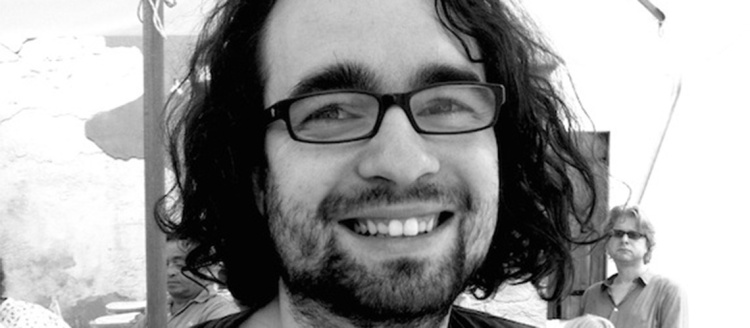
10 a.m. Feb. 23 – Mike Tyka, Seattle, WA | Zoom
Mike Tyka became involved in creating sculpture and art in 2009 when he helped design and construct Groovik’s Cube, a 35ft tall, functional, multi-player Rubik’s cube installed in Reno, Seattle and New York. Since then his artistic work has focused both on traditional sculpture and modern technology, such as 3D printing and artificial neural networks. His sculptures of protein molecules use cast glass and bronze and are based on the exact molecular coordinates of each respective biomolecule. They explore the hidden beauty of these amazing nanomachines, and have been shown around the world from Seattle to Japan. Mike also works with artificial neural networks as an artistic medium and tool. In 2015, he created some of the first large-scale artworks using Iterative DeepDream and co-founded the Artists and Machine Intelligence program at Google. In 2017, he collaborated with Refik Anadol to create a pioneering immersive projection installation using Generative Adversarial Networks called “Archive Dreaming”. His latest generative series, “Portraits of Imaginary People,” has been shown at ARS Electronica in Linz, Christie’s in New York and at the New Museum in Karuizawa (Japan). His kinetic, AI-driven sculpture “Us and Them” was featured at the 2018 Mediacity Biennale at the Seoul Museum of Art and in 2019 at the Mori Art Museum in Tokyo.
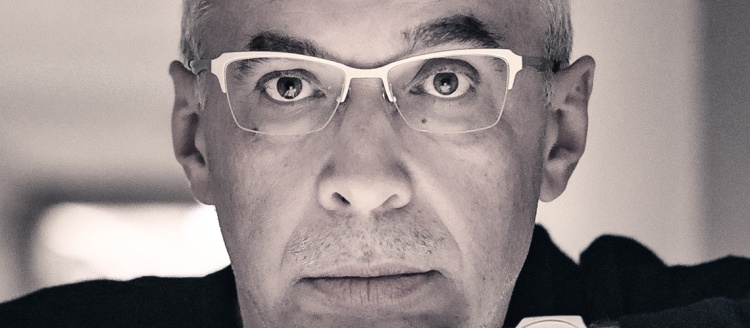
3:30 p.m. Feb. 29 – Lev Manovich, New York | Zoom
Lev Manovich is an artist, writer, and one of the most influential theorists of digital culture worldwide. He is currently a Presidential Professor of Computer Science at the City University of New York’s Graduate Center and the Director of the Cultural Analytics Lab. After studying painting, architecture, and filmmaking, Manovich began using computers to create digital art in 1984. He has played a key role in creating four new research fields: new media studies, software studies, cultural analytics and AI aesthetics. Since 1991, he has published 190 articles and authored and edited 15 books, including Artificial Aesthetics, Cultural Analytics, Instagram and Contemporary Image, Software Takes Command, and The Language of New Media, which has been called “the most provocative and comprehensive media history since Marshall McLuhan.” His projects have been exhibited in 14 solo and 122 international group exhibitions at many prestigious institutions.
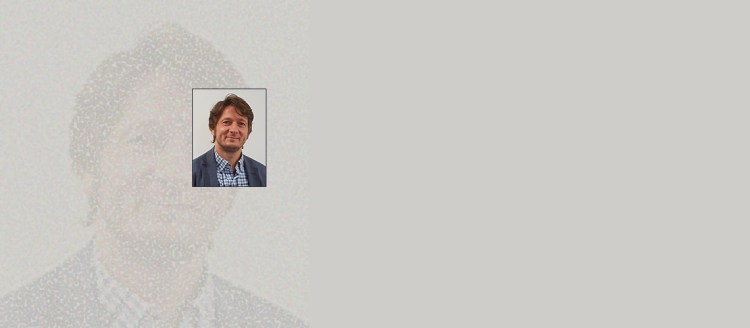
10 a.m. March 1 – Simon Colton, London | Zoom
Simon Colton is a professor of computational creativity, a generative artist and an app developer. He has academic appointments at Queen Mary University of London and at SensiLab of Monash University in Australia. He is an AI researcher with 25 years of experience studying questions related to creativity in machines. He has worked on generative mathematics, bioinformatics, graphic design, visual art, music, creative language and videogame design projects. He has led projects leading to large software installations challenging assumptions about creativity, including The Painting Fool automated artist, the HR generative mathematics system(s), the WhatIf Machine fictional ideation engine, the Wevva casual game creator and the Art Done Quick visual art casual creator.
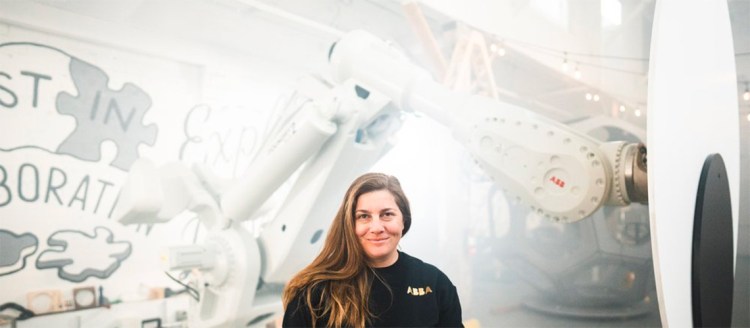
3:30 p.m. Mar. 7 – Madeline Gannon, Miami | Zoom
Dr. Madeline Gannon is a multidisciplinary designer who blends techniques in art, design, computer science, and robotics to forge new futures for human-robot relations. Also known as “The Robot Whisperer,” Gannon is known for transforming giant industrial robots into mechanical creatures and taming hordes of autonomous machines to behave like a pack of animals. Gannon believes that technology is a cultural medium and tunes her work to engage communities across science and society. Her works have been exhibited at international cultural institutions, published at academic conferences, and profiled at global media outlets. Dr. Gannon is a World Economic Forum Cultural Leader, a former Robotics and AI Researcher at NVIDIA and a former artist in residence at ETH Zurich, Autodesk Pier 9, and the Carnegie Mellon STUDIO for Creative Inquiry.
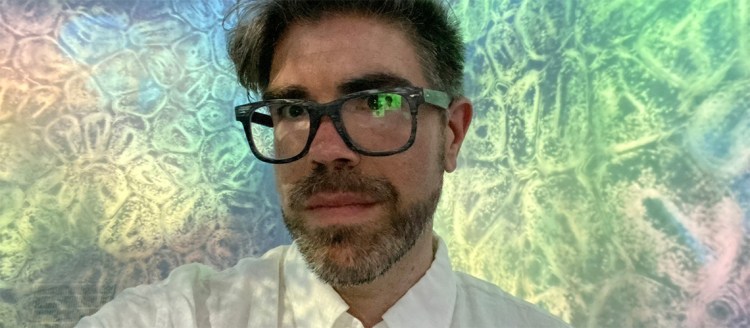
3:30 p.m. Mar. 14 – Eryk Salvaggio, Rochester, New York | Zoom
Eryk Salvaggio is an interdisciplinary design researcher and new media artist. His work explores emerging technologies through a critically engaged lens, testing their mythologies and narratives against their impacts on social and cultural ecosystems. The work interrogates generative AI through a blend of cybernetics, visual culture and media theory, with a critique grounded in resistance and creative misuse, highlighting the gaps that emerge between the analog and digital, such as datasets and the world they claim to represent. Salvaggio’s work has been published in academic journals and by art publishers. His artwork has been included in pieces with the BBC4, The New York Times, ArtForum, NBC News, Neural, Dirty, and Mute Magazine.
—-
ChatGPT contributed to this story.
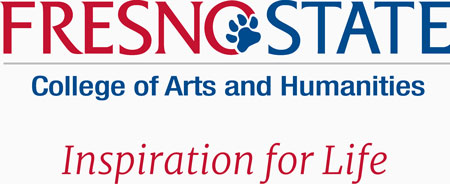
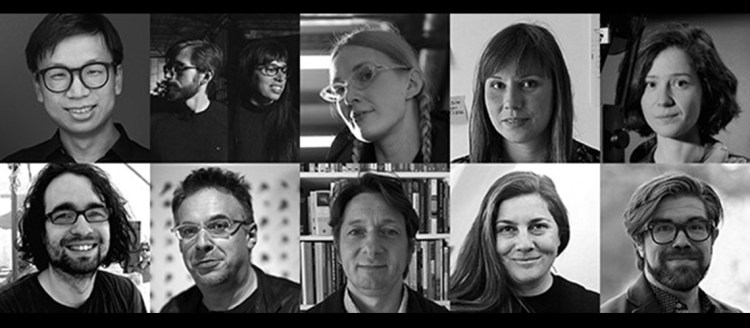
One thought on “AI takes center stage in Art Education Lecture Series”